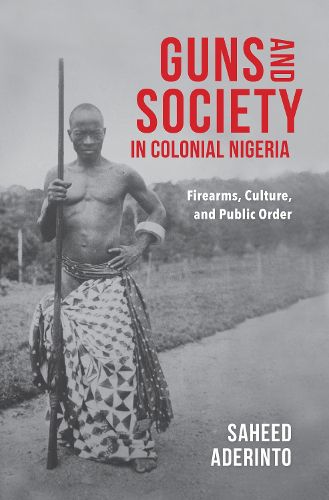Readings Newsletter
Become a Readings Member to make your shopping experience even easier.
Sign in or sign up for free!
You’re not far away from qualifying for FREE standard shipping within Australia
You’ve qualified for FREE standard shipping within Australia
The cart is loading…






Guns are an enduring symbol of imperialism, whether they are used to impose social order, create ceremonial spectacle, incite panic, or to inspire confidence. In Guns and Society, Saheed Aderinto considers the social, political, and economic history of these weapons in colonial Nigeria. As he transcends traditional notions of warfare and militarization, Aderinto reveals surprising insights into how colonialism changed access to firearms after the 19th century. In doing so, he explores the unusual ways in which guns were used in response to changes in the Nigerian cultural landscape. More Nigerians used firearms for pastime and professional hunting in the colonial period than at any other time. The boom and smoke of gunfire even became necessary elements in ceremonies and political events. Aderinto argues that firearms in the Nigerian context are not simply commodities but are also objects of material culture. Considering guns in this larger context provides a clearer understanding of the ways in which they transformed a colonized society.
$9.00 standard shipping within Australia
FREE standard shipping within Australia for orders over $100.00
Express & International shipping calculated at checkout
Guns are an enduring symbol of imperialism, whether they are used to impose social order, create ceremonial spectacle, incite panic, or to inspire confidence. In Guns and Society, Saheed Aderinto considers the social, political, and economic history of these weapons in colonial Nigeria. As he transcends traditional notions of warfare and militarization, Aderinto reveals surprising insights into how colonialism changed access to firearms after the 19th century. In doing so, he explores the unusual ways in which guns were used in response to changes in the Nigerian cultural landscape. More Nigerians used firearms for pastime and professional hunting in the colonial period than at any other time. The boom and smoke of gunfire even became necessary elements in ceremonies and political events. Aderinto argues that firearms in the Nigerian context are not simply commodities but are also objects of material culture. Considering guns in this larger context provides a clearer understanding of the ways in which they transformed a colonized society.